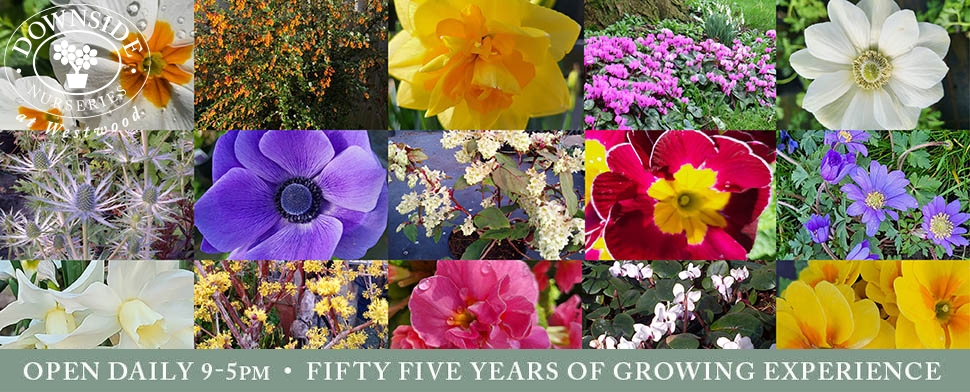Very often, a “FAQ” about compost is: “I want compost that does everything – which one should I buy?
The truth is there is no such thing! A quick look round the yard revealed that we have nine commercial composts in stock plus a bulk mix for herbaceous plants made to our own specification. Even then we often mix two types together to get exactly what we need for a particular crop and almost always add long-term fertilizer 6,9,12 or 18 months as appropriate.
We have a good range of retail composts:
- Choose a fine multi-purpose for seeds and seedlings. This will not have much fertilizer so be prepared to feed later.
- Potting composts are stronger and coarser but only suitable for well-established plants.
- Hanging basket compost will contain water retaining gel and long-term fertilizer. But do not let that stop you liquid feeding – say once a week to start with and more often in September.
- If you are potting-up a shrub which will live permanently outside, choose a compost containing soil. The clay content will help retain the important trace elements and the weight will help stop it blowing over.
- Soil containing compost also seems to give the best results for growing vegetables. We stock Michael King’s 3:2:1 – our most popular compost and very reliable. We use it ourselves sometimes.
- We will sell bags of commercial compost to keen expert gardeners – ask at the till.
Whatever compost you use, remember plants need oxygen at their roots. This is one of the vital ingredients in a compost and one you don’t pay for – air! Bags that have been stacked on pallets can become very compacted. A bit of work breaking down the lumps and fluffing it up will pay dividends.
Check out the Downside Nurseries website here and the Composts and Tree Bark here
Lorraine Young
Downside Nurseries




